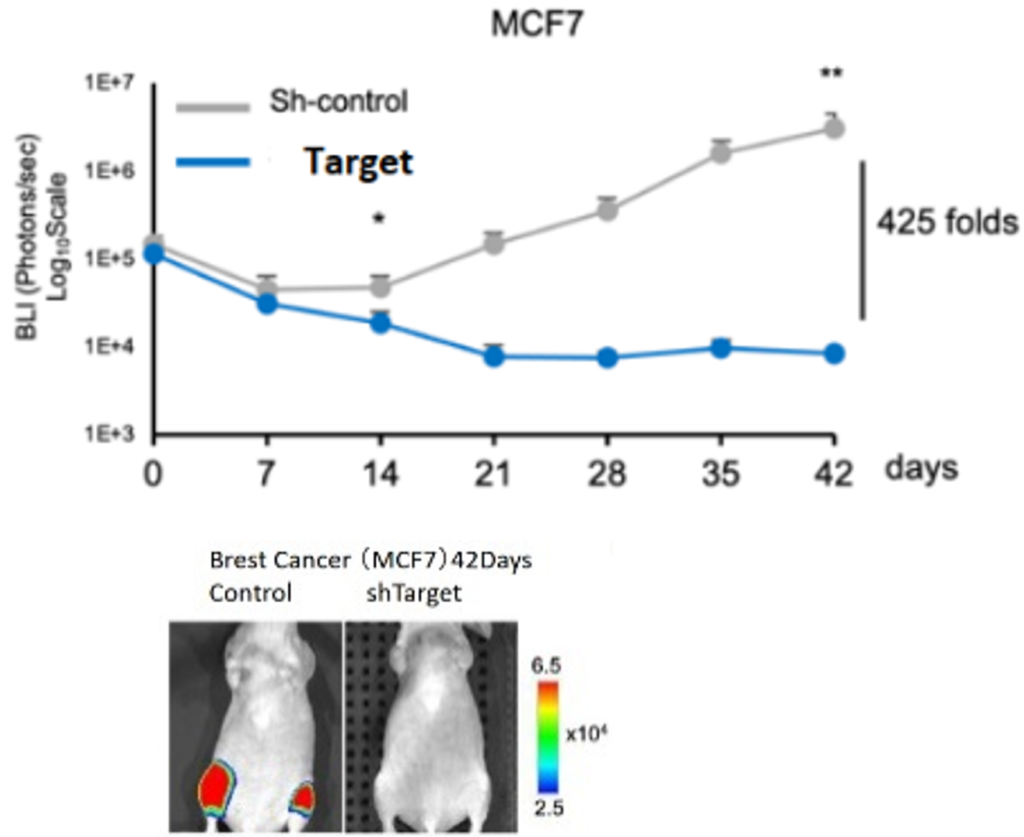Advantages
- Identification of new target molecules and pathways for cancer metastasis
- Extending recurrence-free survival after localized treatment of oligometastatic cancer
- Personalized treatment with companion diagnostics
Current Stage and Key Data
Research stage of target molecules and mechanisms (discovery stage)
Partnering Model
Collaborative research into screening and optimization of inhibitors of this target molecule (nucleic acids, small molecule compounds, etc.)
- Preferred indication: Extending recurrence-free survival after local therapy of oligometastatic breast cancer
- Examples of potential partners: Biotech/pharmaceutical companies, Drug discovery companies
Background
In the development of bone metastatic tumors, metastasis initiating cells (MICs) remain dormant in bone tissue and are reactivated to form metastatic lesions, which are the root cause of metastatic recurrence. Therefore, it is believed that therapeutic strategies targeting MICs are the most effective way to prevent metastatic recurrence. However, the factors that determine the survival and reactivation of MICs have not been identified.
 |
We established a highly reproducible mouse model of bone metastasis with reactivation from metastatic latency and identified target molecules by analyzing an in vivo database in combination with human clinical samples. We confirmed that metastasis can be suppressed by using substances that inhibit the target molecules or their pathways.
Principal Investigator
Shinya Tanaka (Department of Cancer Pathology, Faculty of Medicine, Hokkaido University)
Reference
- Paper: Unpublished
- Patent: Patent pending (unpublished)
*Additional information can be disclosed under the CDA.
Project ID:BK-05221



